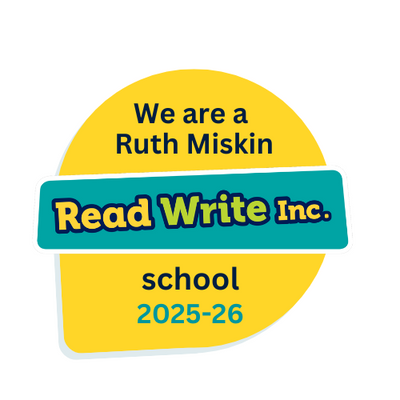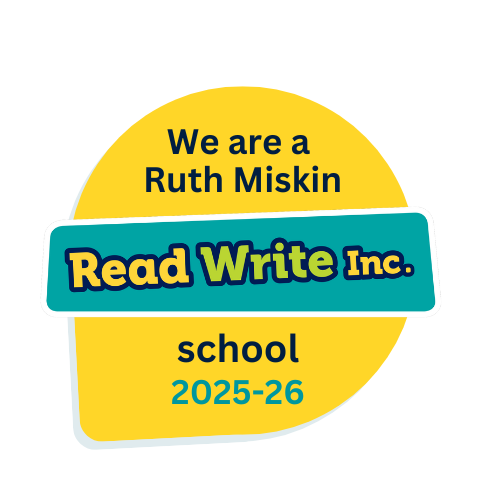READING

Click HERE to download a booking form or email admin@catherine-inf.leicester.sch.uk for enquiries.

AIMS
For children to;
- read easily, fluently and effortlessly, with good understanding.
- develop the habit of reading widely and often, both for pleasure and information.
- develop a wide vocabulary, an understanding of grammar and knowledge of how the English language works for reading, writing and spoken language.
- appreciate our rich and varied literary heritage.
APPROACH
We use the Read Write Inc approach to teach word reading through phonics across the school.
We teach:
- knowledge of the letters and their associated sounds (the alphabetic code)
- the speedy working out of the pronunciation of unfamiliar printed words (decoding) and the speedy recognition of familiar printed words (HFW)
- the ability to read words that do not follow the alphabetic code (tricky words)
If you would like to know more, there are lots of videos on this page: https://www.ruthmiskin.com/parents/
Comprehension / Talk for Reading
Pupils experience a range of activities in classes, groups or individually to develop the ability to:
- process text, drawing on their knowledge of vocabulary, word meanings and grammar, and their own knowledge of the world.
- match reading with what they already know, making links within and across texts.
- identify themes - asking and answering questions.
- retrieve, infer and deduce from texts.
- have an awareness of the author: how they have used a point of view, the language and/or types of words, how they have set out the text, what the context is.
- show empathy and understanding – putting themselves ‘in someone else’s shoes’.
Fun Reading
As well as pupils hearing and enjoying a good story at least once every day, we have regular cross curricular theme days, WOW days and longer projects for reading including:
- Specific reading focussed days such as World Book Day.
- Fundraising days such as Pyjamarama.
- ‘Author Weeks’ organised by the local authority ‘Whatever it takes’ (WIT) partnership: a published author visits school and presents their work to our pupils.
- The Year 2 ‘Our Best Picture Book’ awards with votes for a short listed set of books cast by pupils, parents and staff.
- Two classes visit Belgrave Library each week and we also have visits from story tellers.
- Supporting library activities such as story-telling sessions and the summer reading challenge.
- School Book Fair week.
- Reading Round About session where pupils choose a book from a choice and go somewhere different with a different member of staff to hear it in a story session.
Library Leaders
We have a leadership team of pupils who take turns to run the library at lunchtimes. Alongside a Teaching Assistant, their job is to promote reading with their classmates, share books and other texts, take care of the library and support anyone in Year 1 or Year 2 who wants to read in the library at lunchtime.
OUR READING OFFER
HOME READING
We encourage parents, siblings and close relatives to read with children. Pupils know that they are expected to read at home as often as they can. All pupils take a ‘Book Bag’ containing books and a reading diary to and from school each day. There will be a levelled book, a phonically decodable book – closely matched to the letter shapes and associated sounds children are learning in class and perhaps word lists and/or phoneme sheets.
Teachers will post individual comments about a child's reading onto the portfolio area of Classdojo every other week. This will include suggestions as to how parents can support their child in reading.
Here are some tips;
https://www.booktrust.org.uk/books-and-reading/tips-and-advice/reading-tips/














